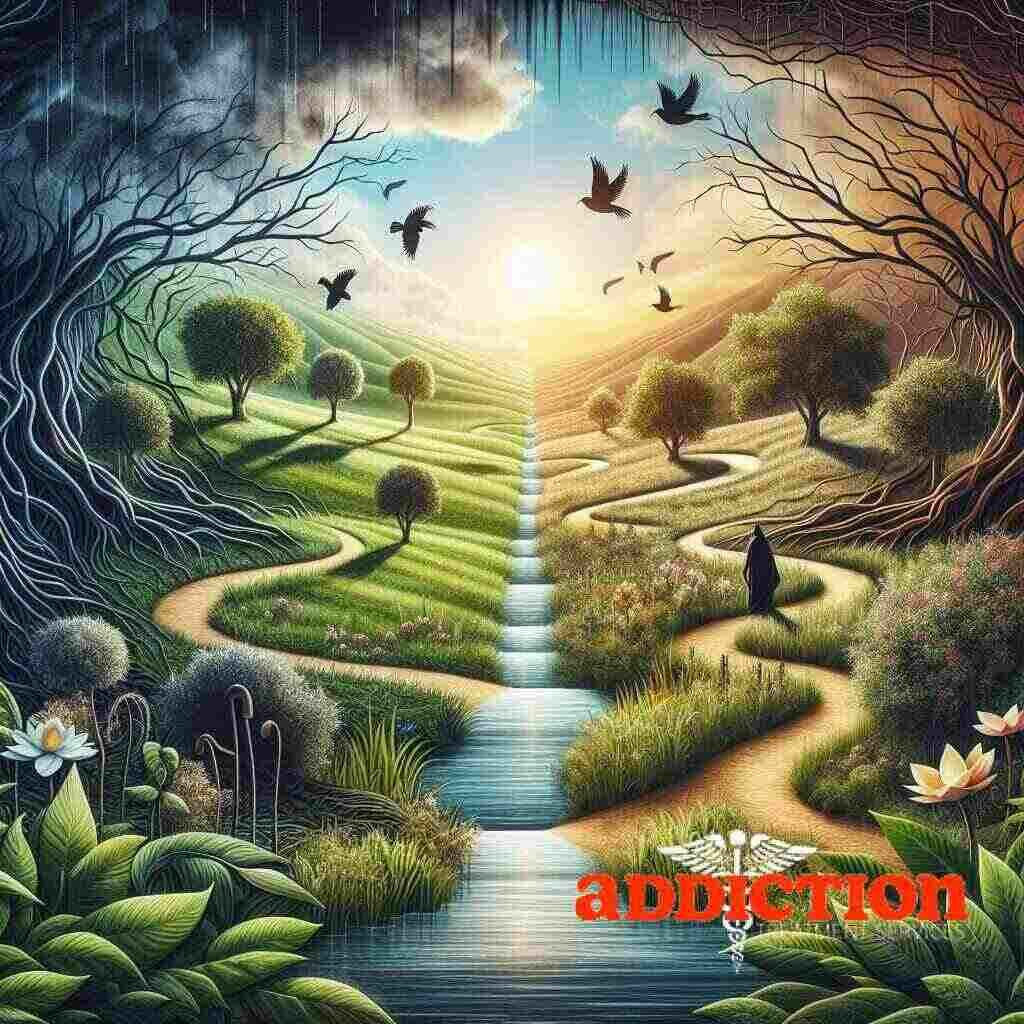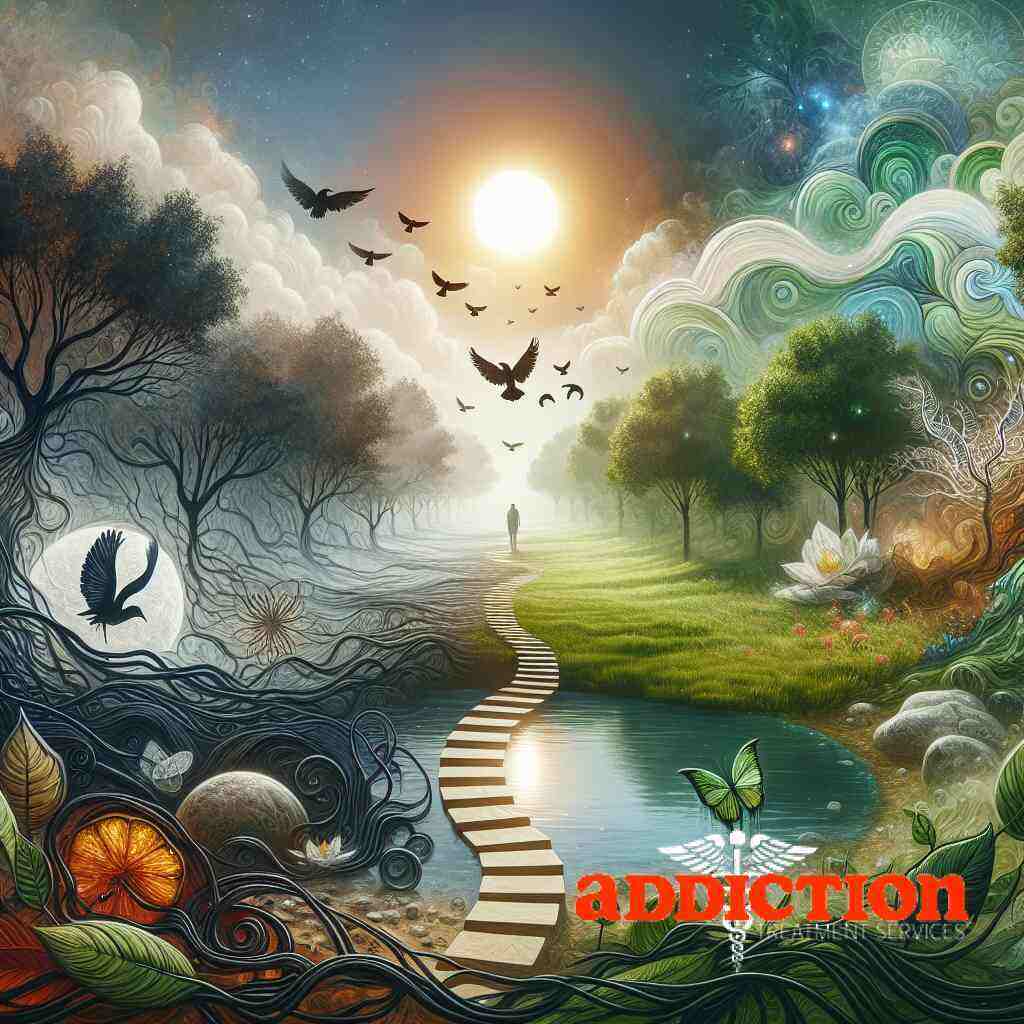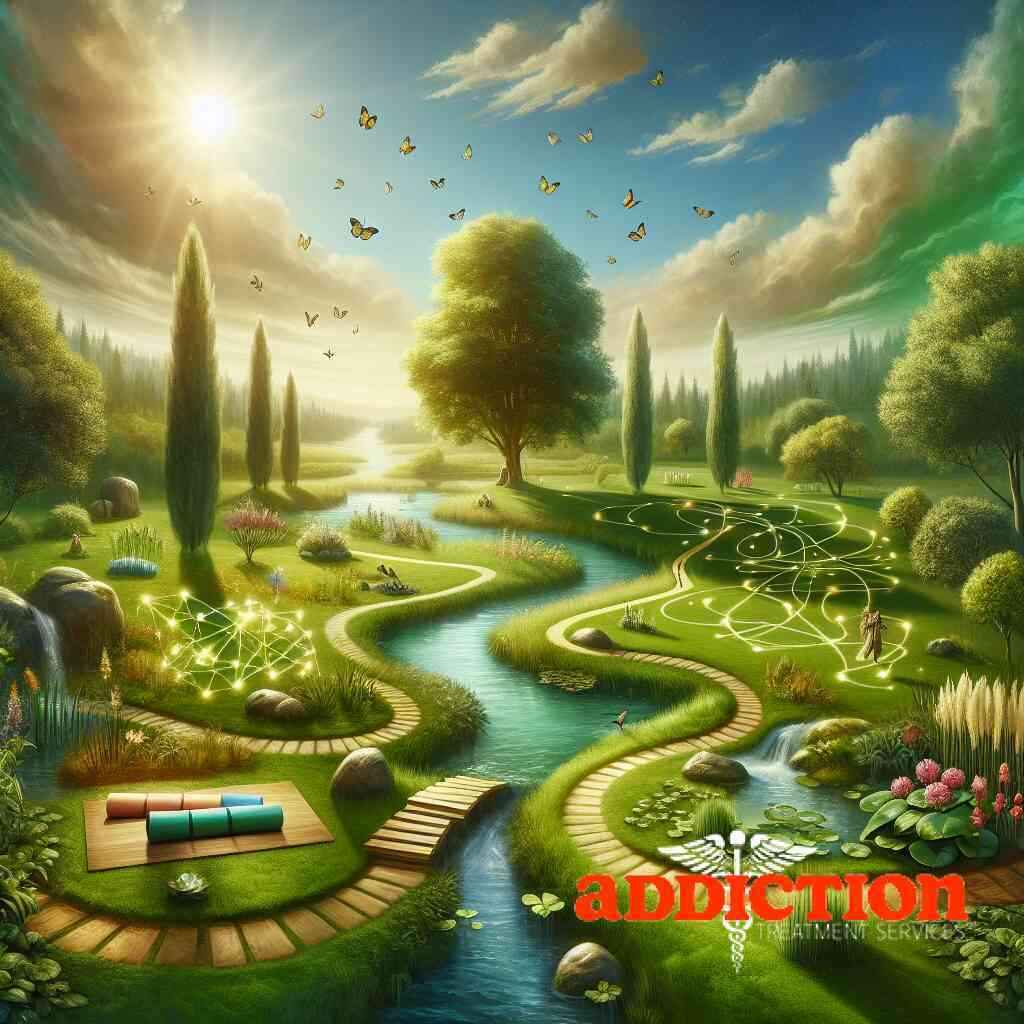 Posted On: 06/16/2024
Posted On: 06/16/2024Understanding Addiction and Its Complex Nature
Defining Substance Use Disorders
Substance Use Disorders (SUDs) represent a complex set of conditions marked by the excessive use of substances, including drugs and alcohol, despite significant substance-related problems. This classification encompasses a range of misuse patterns, from mild to severe, each with its unique challenges in treatment. The defining characteristic of SUDs is the inability to control substance use, leading to detrimental impacts on health, social relationships, and functioning. Understanding SUDs as a medical condition, not a moral failing, is crucial in addressing the stigma that often surrounds addiction and complicates the recovery process.
The Impact of Addiction on Individuals and Families
The ripple effects of addiction stretch far beyond the individual, deeply affecting families and communities. It can erode family structures, diminish financial stability, and lead to enduring emotional and psychological trauma among loved ones. Family members often find themselves in a cycle of hope and despair as they navigate the complexities of supporting a loved one while striving to maintain their own well-being. Recognizing the family’s role not only as affected bystanders but also as pivotal supporters in the recovery journey is elemental in formulating comprehensive treatment approaches. Initiatives aimed at educating and involving families in the treatment process can significantly bolster the recovery outcomes and foster healthier familial dynamics post-treatment.
Essential Addiction Education and Prevention
Prevention and education are foundational elements in the battle against substance misuse and addiction. Effective prevention strategies focus on reducing the risk factors and enhancing protective factors related to substance abuse, starting from early childhood through adolescence. Education plays a vital role in prevention, equipping individuals with knowledge about the risks and consequences of substance use, as well as actionable strategies for resilience against peer pressure and substance availability. Addiction education extends to communities and healthcare professionals, advocating for early intervention and informed, compassionate responses to individuals showing signs of substance misuse.
The Foundation of Addiction Treatment
The journey towards recovery from substance abuse and addiction begins with a solid foundation, rooted in comprehensive understanding, personalized care approaches, and the initiation of detoxification services. Addiction Treatment Services is committed to guiding individuals through each of these critical steps, offering support and resources that pave the way for a healthier, substance-free future.
Comprehensive Assessment: The First Step Towards Recovery
At the outset of the treatment process, a thorough and comprehensive assessment serves as the cornerstone for effective recovery planning. This initial evaluation goes beyond merely cataloging substance use habits,it delves into medical history, psychological status, social dynamics, and any concurrent mental health conditions. The purpose is to gain a holistic understanding of the individual’s specific needs, challenges, and goals. Addiction treatment centers leverage these insights to craft a tailored treatment trajectory that addresses the root causes of addiction, not just its symptoms. The comprehensive assessment process ensures that every aspect of the individual’s well-being is considered, setting a solid foundation for the recovery journey ahead.
Individualized Treatment Plans: Tailoring Recovery to the Individual
Following a detailed evaluation, addiction treatment services pivot towards the development of individualized treatment plans. Recognizing that recovery is not a one-size-fits-all process, these plans are meticulously designed to resonate with the unique circumstances, preferences, and objectives of each person. From selecting the most suitable treatment facility to determining the intensity and duration of treatment, every decision is made with the individual’s best interest in mind. Whether it involves residential treatment, outpatient care, or a combination of therapies, creating a personalized plan is pivotal in fostering engagement, adherence, and ultimately, successful recovery outcomes.
The Role of Detoxification Services in Addiction Treatment
Detoxification marks the physical beginning of the healing process, where the body is cleared of substances and their toxic influences. It’s a critical, albeit challenging, phase that manages withdrawal symptoms under medical supervision to ensure safety and comfort. Detox services are often the first real step towards sobriety and are usually followed by an integrated treatment program that addresses the psychological root of addiction. Through medication-assisted treatments, supportive care, and continuous monitoring, detoxification services lay the groundwork for the deep, therapeutic work that follows. It is an essential component of the comprehensive approach to addiction treatment, designed to prepare individuals for the transformative journey of recovery.
Medication-Assisted Treatment (MAT)
Overview of Medication-Assisted Treatment and Its Efficacy
Medication-Assisted Treatment (MAT) is a transformative approach to addressing substance use disorders, particularly for those battling opioid, alcohol, and tobacco addiction. This method combines the use of FDA-approved medications with comprehensive counseling and behavioral therapies to treat the whole patient, not just the addiction. The effectiveness of MAT lies in its ability to reduce withdrawal symptoms and cravings, which are significant barriers to recovery, thereby enhancing the ability to focus on the behavioral aspects of addiction. Research supports MAT’s efficacy, showing improved patient survival rates, increased retention in treatment, and a greater chance of achieving and maintaining sobriety. By directly addressing the physical aspects of addiction, MAT paves the way for a more robust engagement in the psycho-social recovery process, making it a cornerstone of modern addiction treatment paradigms.
Common Medications Used in Substance Abuse Treatment
In the realm of MAT, several medications have come to the forefront for their effectiveness in managing substance dependence. For opioid addiction, substances like Methadone, Buprenorphine, and Naltrexone are widely used to mitigate withdrawal symptoms and diminish the desire to use. These medications work by interacting with the same brain receptors as illicit opioids, but without producing the same high, thereby breaking the cycle of addiction. For alcohol dependence, Naltrexone, Acamprosate, and Disulfiram are the primary medications, each working in different ways to support sobriety, whether by reducing cravings, moderating withdrawal symptoms, or creating aversion to alcohol. The utilization of these medications as part of a MAT program requires careful medical oversight to ensure their effectiveness and to minimize potential side effects, underscoring the importance of integrating these treatments within a comprehensive care plan.
Integrating MAT with Behavioral Therapies for Holistic Care
The integration of MAT with behavioral therapies offers a multifaceted approach to addiction treatment, emphasizing the importance of addressing both the physical and psychological components of addiction. Behavioral therapies such as Cognitive Behavioral Therapy (CBT), Motivational Interviewing, and Family Therapy play a critical role in changing thought patterns, behaviors, and family dynamics that contribute to substance use disorders. These therapies provide the tools and strategies necessary for individuals to cope with triggers, prevent relapse, and rebuild their lives. The combination of medication to stabilize brain chemistry and therapy to alter behavior offers a holistic pathway to recovery, marking a paradigm shift in how substance use disorders are treated. This integrated approach is at the heart of MAT’s success, reinforcing the belief that comprehensive treatment offers the best opportunity for individuals to achieve a sustained recovery.
Behavioral Therapies for Addiction Recovery
Cognitive Behavioral Therapy: Changing Thought Patterns
Cognitive Behavioral Therapy (CBT) stands as a cornerstone in the landscape of addiction recovery, offering a structured path towards altering maladaptive thought patterns and behaviors associated with substance misuse. By focusing on the interplay between thoughts, feelings, and actions, CBT enables individuals to identify triggers that lead to substance use and develop coping strategies to manage them effectively. Programs incorporating CBT strategies not only address the symptoms of addiction but also tackle underlying issues, ensuring a comprehensive healing process. Through personalized sessions, patients learn to challenge and replace negative beliefs with positive affirmations, significantly reducing the likelihood of relapse.
Family Therapy in Addiction Treatment: Healing Together
Family therapy represents an integral component of a holistic treatment plan, acknowledging that addiction affects more than just the individual-it impacts the entire family system. This therapeutic approach facilitates communication, resolves conflicts, and fosters a supportive environment essential for recovery. By involving family members in the treatment process, therapists can explore family dynamics that may contribute to substance use disorders, ultimately strengthening the family unit and providing a solid support network. The goal is to heal relationships, improve understanding, and equip families with the tools needed for ongoing support and recovery.
Dual Diagnosis Treatment: Addressing Co-occurring Disorders
Effective addiction treatment recognizes the frequent co-occurrence of substance use disorders with mental health conditions, such as depression, anxiety, or PTSD. Dual diagnosis treatment programs offer integrated care that addresses both the addiction and the mental health issue simultaneously. This approach ensures a more comprehensive recovery by treating the underlying mental health disorders that may contribute to or exacerbate substance misuse. Access to psychoactive medication in addiction treatment and specialized therapy helps patients manage symptoms of both conditions, reducing the risk of relapse and promoting a healthier, more balanced lifestyle.
Relapse Prevention Strategies: Sustaining Long-term Recovery
Relapse prevention is a critical aspect of lasting recovery, involving strategies designed to identify and address high-risk situations and triggers. These strategies encompass a wide range of techniques, including self-monitoring, stress management, and emergency planning, all aimed at empowering individuals to maintain sobriety. Education on the stages of relapse and coping mechanisms plays a vital role in equipping patients with the knowledge and tools necessary to navigate challenges post-treatment. By reinforcing recovery principles and encouraging active participation in community support groups such as Alcoholics Anonymous meetings for addiction support and Narcotics Anonymous meetings for substance recovery, individuals can strengthen their resolve and commitment to a drug-free life, ensuring sustained success on the journey towards recovery.
Comprehensive Care Options
Residential Treatment Facilities: A Home Away From Home
Residential treatment facilities offer a structured and immersive environment for individuals seeking recovery from substance use disorders. These facilities, often referred to as inpatient centers, provide a safe haven where individuals can focus entirely on their recovery journey, free from the distractions and triggers of their daily environment. The essence of a residential treatment lies in its comprehensive approach,it encompasses various therapeutic modalities, including individual therapy, group sessions, and sometimes, holistic treatments to support physical and emotional healing. By living on-site, individuals benefit from constant support and monitoring, making it an ideal option for those with severe addiction or co-occurring mental health conditions. Personalized care plans are developed to meet the unique needs of each resident, ensuring a targeted approach to recovery that addresses both the symptoms and the root causes of addiction.
Outpatient Treatment Programs: Flexibility and Support
Outpatient treatment programs provide a more flexible approach to addiction recovery, allowing individuals to engage in treatment while maintaining their daily responsibilities, such as work, school, or family obligations. These programs vary in intensity, from weekly counseling sessions to more structured day programs. Outpatient care is often suited for those with mild to moderate addiction symptoms or as a continuation of care following a residential treatment program. Integrating various forms of therapy, outpatient recovery programs focus on relapse prevention, coping strategies, and developing a supportive network, empowering individuals to rebuild their lives in the context of their communities. The key advantage of outpatient treatment is the ability to apply recovery skills in real-world situations, gradually fostering independence and confidence in sustaining sobriety.
Intensive Outpatient Programs: A Step Down from Inpatient Care
Intensive Outpatient Programs (IOPs) serve as a bridge between the immersive support of residential treatment and the autonomy of traditional outpatient care. IOPs are characterized by a structured therapy schedule, typically requiring participation in multiple sessions per week, while still allowing participants to live at home. This model is particularly beneficial for those transitioning from an inpatient setting or for individuals seeking a higher level of care without the full-time commitment of residential treatment. IOPs offer a robust curriculum that includes group therapy, individual counseling, and educational workshops designed to enhance coping mechanisms, improve communication skills, and foster long-term recovery strategies. By participating in an intensive outpatient addiction center, individuals can continue their recovery journey with a strong support system while gradually reintegrating into their daily lives.
Recovery Support Groups and Addiction Recovery Communities
Recovery support groups and addiction recovery communities play a fundamental role in the continuum of care for substance use disorders. These groups provide a platform for shared experiences, offering mutual support, encouragement, and accountability. Programs like Alcoholics Anonymous (AA) and Narcotics Anonymous (NA) operate on the principle of anonymity, creating a safe space for individuals to share their stories and challenges without judgment. Beyond traditional support groups, the concept of recovery communities extends to online forums, sober living houses, and recovery-focused social events, facilitating a sense of belonging and connection. Engaging with these communities helps maintain long-term sobriety by reinforcing individuals’ commitment to recovery and providing a network of support that is critical during challenging times. These forums also serve as a valuable resource for learning coping strategies and celebrating milestones, ensuring that no one has to face the journey of recovery alone.
Holistic Approaches to Addiction Treatment
Incorporating Holistic Methods in Substance Use Disorder Treatment
Holistic approaches in the treatment of substance use disorders (SUDs) have gained prominence for their capacity to address not only the physical aspects of addiction but the mental and spiritual facets as well. These methods, which encompass a wide range of non-traditional therapies, aim to heal the whole person rather than focusing solely on the addiction itself. Incorporating holistic approaches for substance misuse recovery can significantly enhance the treatment experience by providing more personalized and comprehensive care. Techniques such as acupuncture, yoga, art therapy, and guided meditation can complement conventional treatments by relieving stress, improving mental health, and fostering a deeper sense of well-being and self-discovery. By integrating these therapeutic modalities into a treatment plan, individuals may find new ways to cope with cravings, manage stress, and ultimately, achieve a more balanced and fulfilling recovery journey.
The Benefits of Mindfulness and Meditation in Recovery
Mindfulness and meditation have become integral parts of many addiction recovery programs due to their profound benefits in enhancing mental clarity, emotional stability, and overall well-being. These practices encourage individuals to stay present and aware, helping to break the cycle of compulsive thoughts and behaviors that often drive addiction. Through regular mindfulness exercises and meditative practices, people in recovery learn to observe their thoughts and feelings without judgment, recognizing that cravings and negative emotions are temporary states that do not require substance use to alleviate. This awareness fosters a stronger connection to self, reduces stress, and improves resilience, making mindfulness and meditation powerful tools in sustaining long-term sobriety.
Nutrition and Exercise: Supporting Physical Recovery
Proper nutrition and regular exercise play crucial roles in the physical aspect of recovery from substance abuse. Individuals recovering from addiction often face nutritional deficiencies and health issues as a result of prolonged substance use. A focus on nutrition can help repair damage caused by addiction, boost the immune system, improve energy levels, and enhance mood. Tailored nutritional plans can address specific deficiencies, promoting overall health and aiding in the detoxification process. Similarly, regular physical activity, including but not limited to aerobic exercise, resistance training, and recreational sports, can significantly improve mental health. Exercise releases endorphins, natural mood lifters, that can reduce stress, alleviate symptoms of depression and anxiety, and improve sleep. Integrating these physical health components into a recovery plan supports the body’s healing process, complements other treatment modalities, and encourages a lifestyle that supports sobriety and wellbeing.
Navigating the Path Forward
The recovery journey from addiction is ongoing, often requiring sustained effort, support, and resources. As individuals progress through treatment, they embark on a new chapter of their lives, one where navigating the path forward with clear intentions and strategies becomes paramount. This section delves into the crucial aspects of developing a long-term recovery plan, the significance of psychological support, the role of sobriety maintenance programs, and the utility of online resources in bolstering recovery efforts.
Developing a Long-term Recovery Plan
A long-term recovery plan is a personalized blueprint that guides individuals in maintaining their sobriety and continuing personal growth beyond formal treatment. Such plans often include goals for personal and professional development, strategies for coping with stress and triggers, and a schedule for ongoing therapy or support group meetings. The key to a successful recovery plan lies in its adaptability and realism, ensuring it can evolve with the individual’s changing needs and circumstances. Additionally, setting achievable milestones and celebrating these victories can foster a sense of accomplishment and motivation, crucial elements for sustained recovery.
Psychological Support for Addiction and Mental Health
Addressing the psychological facets of addiction is an essential component of rehabilitation and long-term recovery. Mental health services, including individual therapy, support groups, and addiction counseling services, offer continuous psychological support, aiding individuals in understanding and managing the emotional and cognitive aspects of addiction. Therapy can unearth underlying mental health issues that contribute to substance use, providing strategies for handling these conditions without resorting to drugs or alcohol. Moreover, psychological support fosters self-awareness, resilience, and emotional stability, vital for navigating the challenges of recovery and leading a fulfilling life.
Engaging with Sobriety Maintenance Programs
Sobriety maintenance programs are indispensable for many in the long-term management of substance abuse recovery. These programs, which include activities like regular meetings with support groups, ongoing therapy, and participation in sober activities, provide a structured framework for maintaining sobriety. Engaging in sobriety maintenance programs helps individuals build a support network of peers and professionals who understand the challenges of addiction, offering guidance, encouragement, and accountability. Such programs also emphasize the importance of routine and self-care in preventing relapse, highlighting the ongoing nature of recovery as a lifestyle choice rather than a temporary phase.
Utilizing Online Resources for Continuous Support
In today’s digital age, online resources have become a vital component of the recovery ecosystem, offering access to information, support, and community at the click of a button. Online forums, teletherapy sessions, educational materials, and virtual support group meetings enable individuals to connect with resources and support networks regardless of their physical location. These digital tools can supplement traditional recovery methods, providing continuous support and flexibility to fit the diverse needs of those in recovery. Moreover, online platforms can serve as a bridge to in-person resources, helping individuals find local support services, therapists, and recovery communities, ensuring a comprehensive approach to addiction treatment and recovery.
By focusing on these strategies – developing a long-term recovery plan, leveraging psychological support, engaging with sobriety maintenance programs, and utilizing online resources – individuals can navigate the complexities of recovery with confidence and support. Each step forward on this path represents progress toward healing, self-discovery, and a life free from the chains of addiction.
In Conclusion: A Journey Towards Healing and Wholeness
The Importance of Seeking Professional Help
Navigating the complexities of addiction and the recovery process can be a daunting endeavor, underscoring the critical importance of seeking professional help. Substance use disorders are multifaceted conditions that affect individuals physically, mentally, and emotionally, requiring a comprehensive and coordinated treatment approach. Professional addiction treatment services are equipped with the knowledge, resources, and expertise necessary to address these challenges effectively. Engaging with professionals can facilitate a proper diagnosis, enable access to evidence-based treatments, and provide continuous support throughout the journey of recovery. Moreover, addiction treatment centers offer a safe and supportive environment where individuals can focus solely on their recovery without the distractions and triggers present in their daily lives. By seeking professional help, individuals embarking on this journey are not only making a commitment to their personal health and well-being but are also taking a significant step towards a life of freedom and fulfillment.
How Addiction Treatment Services Empower Individuals
Addiction Treatment Services plays a pivotal role in empowering individuals battling substance use disorders by providing access to a wide range of recovery resources and services. From guiding individuals to the addiction treatment centers best suited to their needs, to introducing them to the various modalities of care, including medication-assisted treatment, outpatient treatment, and residential programs, Addiction Treatment Services demystifies the path to recovery. This empowerment extends beyond simply connecting individuals with treatment facilities,it involves educating them about the nature of addiction, the importance of a holistic treatment approach, and the concept of recovery as a lifelong journey. By highlighting the availability of specialized programs such as dual diagnosis treatment for co-occurring disorders, and the support provided by recovery communities, Addiction Treatment Services equips individuals with the knowledge and resources necessary to take control of their lives and navigate the recovery process with confidence and dignity.
Taking the First Step: Reaching Out for Support
Taking the first step towards recovery is often the most challenging yet important action an individual struggling with substance abuse can take. Reaching out for support signifies a readiness to change and a willingness to pursue a healthier, substance-free life. Addiction Treatment Services simplifies this critical first step by offering a comprehensive directory of addiction treatment services near you, making it easier for individuals and families to find the help they need. Whether it’s locating local detoxification services, intensive outpatient programs, or finding support through recovery communities like AA Meetings or NA Meetings, starting the journey is just a click or a call away. Acknowledging the need for help and seeking support is a courageous act that sets the foundation for a successful recovery. With the right support and resources, individuals can overcome the challenges of addiction and embark on a fulfilling path towards healing and wholeness.
The recovery journey from addiction is a testament to the resilience of the human spirit. It underscores the profound impact of professional help, the empowering role of comprehensive treatment services, and the significance of taking that first brave step towards seeking support. Addiction Treatment Services stands ready to guide individuals through every stage of their recovery journey, from initial outreach to long-term sobriety maintenance, ensuring that no one has to face the complexities of addiction alone.
Frequently Asked Questions
Question: What are the fundamental differences between outpatient and residential treatment facilities addressed in “What are the Two Types of Treatment for Drug Abuse or Addiction?”
Answer: Outpatient and residential treatment facilities offer distinct approaches to addiction recovery, each catering to different needs and circumstances. Outpatient treatment programs provide a flexible option, allowing individuals to participate in treatment sessions while maintaining their daily commitments such as work or school. These programs are especially suitable for those with less severe forms of addiction or as a step-down from more intensive care. On the other hand, residential treatment facilities offer a structured and immersive environment where individuals live onsite, receiving constant support and a comprehensive suite of therapies. This environment is ideal for those with more severe substance use disorders or co-occurring mental health conditions, requiring a focused atmosphere to address the complexities of addiction. Addiction Treatment Services connects clients to both types of facilities, ensuring personalized care that addresses the spectrum of needs in drug addiction recovery.
< clear:both,/>
Question: How do medication-assisted treatment (MAT) programs at Addiction Treatment Services support individuals in overcoming addiction?
Answer: Medication-Assisted Treatment (MAT) programs are a cornerstone of the comprehensive care offered through Addiction Treatment Services, combining FDA-approved medications with behavioral therapies to treat substance use disorders effectively. Our MAT programs support individuals primarily battling opioid, alcohol, and tobacco addiction. The use of medications like Methadone, Buprenorphine, or Naltrexone helps reduce withdrawal symptoms and curb cravings, laying a healthier foundation for recovery. When integrated with counseling and behavioral therapies, MAT addresses the physical and psychological aspects of addiction, enhancing the chances of successful, long-term recovery. Our approach ensures individualized treatment plans, closely monitored by medical professionals to ensure the safety and efficacy of the medication regimen, thereby empowering individuals towards sustained sobriety.
Question: Can you detail the role of family therapy in addiction treatment as mentioned in “What are the Two Types of Treatment for Drug Abuse or Addiction?”
Answer: Family therapy plays a pivotal role in the holistic treatment approach championed by Addiction Treatment Services. Recognizing that addiction deeply affects not just the individual but also their loved ones, our treatment programs incorporate family therapy to mend strained relationships and foster a supportive home environment crucial for recovery. This therapeutic approach helps families understand the complexities of addiction, improve communication skills, and resolve conflicts, creating a strong support network for the individual undergoing treatment. Engaging in family therapy enables family members to become integral contributors to the recovery process, offering love, acceptance, and encouragement, which are invaluable for long-term success. Addiction Treatment Services emphasis on incorporating family in the treatment journey underscores our commitment to comprehensive care and the healing of entire family systems.
Question: What measures does Addiction Treatment Services take to ensure a personalized recovery experience?
Answer: At Addiction Treatment Services, personalization is at the heart of our care philosophy. We start with a comprehensive assessment of each individual’s unique needs, challenges, and goals. This holistic understanding informs the creation of individualized treatment plans that resonate with the person’s specific situation, including their preferences, substance use history, and any concurrent mental health conditions. Our wide array of addiction treatment services encompasses detoxification, medication-assisted treatment, individualized therapy sessions, and both outpatient and residential recovery programs. By tailoring our approach, we ensure that every aspect of the individual’s journey towards recovery is addressed, fostering engagement, adherence, and successful outcomes. Our dedicated team of professionals remains adaptable and responsive to the evolving needs of our clients, ensuring a truly personalized treatment experience from start to finish.
Question: How do Addiction Treatment Services integrate holistic methods into their treatment plans for drug addiction recovery?
Answer: Addiction Treatment Services integrates holistic methods into our treatment plans to address the multifaceted nature of addiction, focusing on healing the mind, body, and spirit. Recognizing the importance of comprehensive wellbeing in recovery, our holistic approaches may include therapies such as yoga, meditation, art therapy, and nutritional counseling. These methods complement our conventional treatment modalities, helping alleviate stress, improve mental health, and enhance physical well being. By offering these holistic therapies, we provide our clients with additional tools to cope with cravings, manage stress, and engage in self-discovery, empowering them to achieve a more balanced and fulfilling recovery journey. Our commitment to incorporating holistic methods into treatment plans reflects our understanding that lasting recovery encompasses much more than abstinence alone,it involves nurturing overall health and happiness.
Question: What online resources does Addiction Treatment Services offer to support individuals in their recovery journey?
Answer: Addiction Treatment Services provides a wealth of online resources designed to support individuals at every stage of their recovery journey. Our website offers access to a comprehensive directory of addiction treatment services, educational materials on various aspects of substance use disorders and recovery, and articles featuring the latest research and effective treatment methodologies. Additionally, we offer online support through virtual therapy sessions and web-based support group meetings, enabling individuals to connect with peers and professionals regardless of location. By leveraging these online tools, we ensure that individuals in recovery have continuous access to the support and information they need, fostering resilience and empowerment in their pursuit of a healthier, substance-free life.




